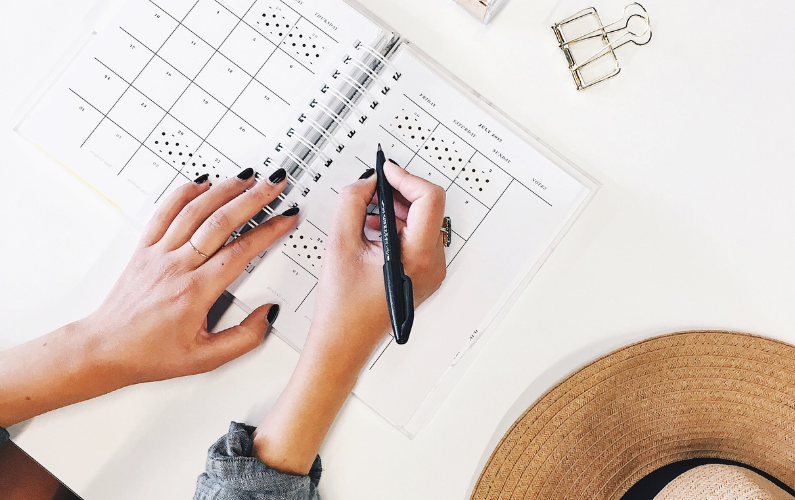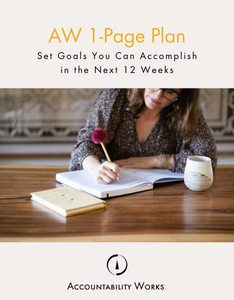I don’t know about you, but I’m starting to overbook myself again and it’s causing me some uneasiness. Like many people I’ve talked to, I’m not willing to live my life as busy as it was before. But I don’t have a framework for a ‘self-imposed slow life’ figured out just yet. So like any good scientist would do, I’m experimenting and learning from others. Here’s what I’ve tried so far that’s been helpful…
1. Pausing at least 24 hours before saying yes to anything
This was Marissa’s idea. We found ourselves way overbooked in a blink of an eye and we had to realize that even though we’d love to speak to your group, be on your podcast or guest post for you, we need to pause first. Look at the calendar. Talk it over with each other. And consider our priorities. At first this felt a little awkward because we like saying yes to new and exciting opportunities. That is until we realize we signed ourselves up for a lot of work that we didn’t have the time budget for.
2. Plan two weeks out
We got this from one of our group members. She is someone that is very organized, lives by her planner and suddenly she was finding that she overcommitted or overbooked herself. She solved this by changing her habit of planning out her week to planning two weeks out. It takes about 15 minutes once a week but planning two weeks out means you see conflicts, with enough lead time that you can do something about it. Some of our favorite questions to consider when planning out your week, two weeks or month are…
It takes about 15 minutes once a week but planning two weeks out means you see conflicts, with enough lead time that you can do something about it. Some of our favorite questions to consider when planning out your week, two weeks or month are…
- Are you taking any time off?
- Are you having any visitors?
- Do you have any events that will impact your normal habits and routines?
- Are they any important dates you need to be aware of – birthdays, anniversaries, graduations?
3. Put in buffer time, whatever buffer you think you need, consider doubling it
This is another time hack that we got from one of our group members. She started with a set period of time between appointments and time blocks but quickly realized that she needed to double it. The result has been a big jump in productivity. Admittedly, this one is tough for me. So I built it into my scheduling app – Calendly. I used to have it set for 15-minutes but I doubled it to 30 minutes. What happens when you have a buffer? You remove the stress of back to back appointments. Having to turn your brain from one subject to another without taking a beat and ultimately exhausting yourself so you are less productive. With buffers you have replaced stress with white space.
How are you maintaining the self-imposed ‘slow life’? We’d love to hear your suggestions!



